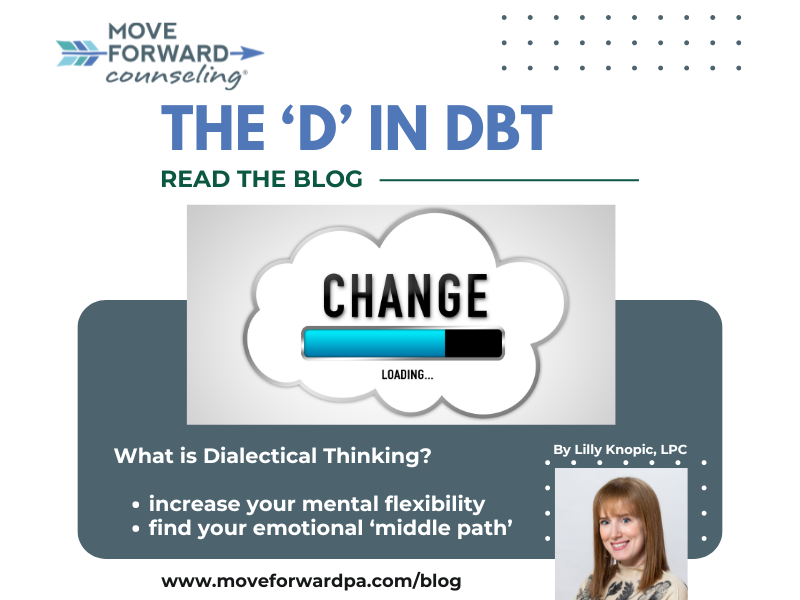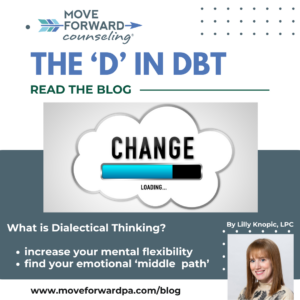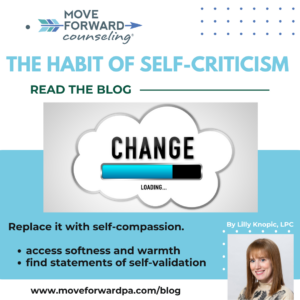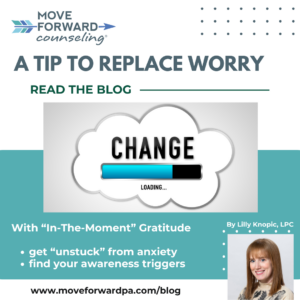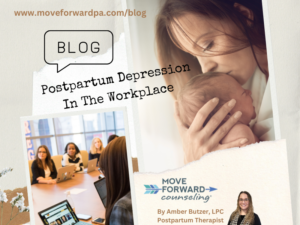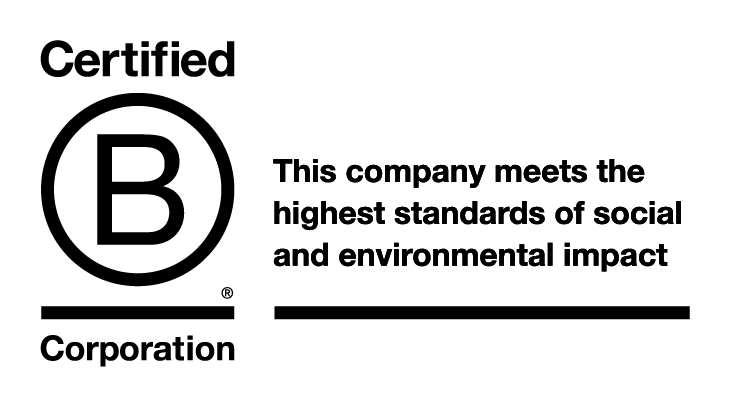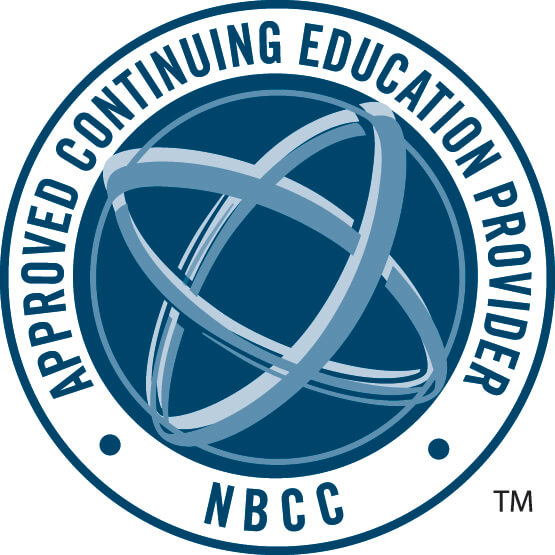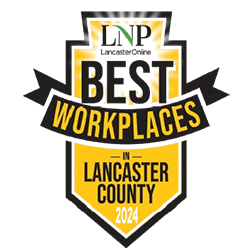Written by Lilly Knopic, LPC (she/her), MFC Therapist
What is change?
When we think about the word “change,” we often think of an outward behavior or habit, such as drinking more water, reaching out to a friend, or walking more frequently. Did you know that our thoughts are considered behaviors and habits, too? One of the most impactful pieces towards improved emotion management was noticing how my thoughts (“thinking habits”) impacted my mood and emotions. I learned it was important not to trust all thoughts and that my thoughts could increase the intensity of an unwanted emotion. Maybe that emotion fit the facts of the situation and made sense, but my self-pity or “inner critic” exacerbated that emotion and made an uncomfortable situation even worse. In this blog, I share one of my preferred ideas and strategies for increasing your psychological flexibility and the ability to “walk the middle path” in your emotional states with new thinking habits.
Dialectical Thinking: The “D” in DBT
One type of mental habit is dialectical thinking (if it sounds familiar, this is the ‘D’ in DBT). To begin practicing the habit of thinking dialectically, we start by noticing our judgmental thinking and looking for both sides of a situation. This mental habit replaces the habit of extreme and judgmental thinking. Judgments prompt unwanted emotions. This skill allows for the idea that there is always more than one side to anything that exists, even if we disagree. It’s attempting to acknowledge all points of view.
Yes, this is hard, and it’s effective. Here are a few ideas on how to begin:
Ask your wise mind the following questions to gain more balance.
-
- What am I missing?
- What is the kernel of truth on the other side?
- Play “devil’s advocate” by considering each side of your own position with equal passion. Validation is not agreement, but what new information do you come up with?
Let go of extremes by observing your thoughts and language and replacing them with more factual language.
-
- Notice and then try to change it once you’ve noticed. For example, Instead of “either-or,”… try “both-and.
- Instead of “always” or “never”… try the word “sometimes.”
Use metaphors and storytelling to unstick the mind and see alternative perspectives.
-
- Maybe you are feeling the urge not to use the skills taught in therapy. This is like getting in a boat to cross the river when the boat has no bottom.
- Even when you are trudging through the mud, you are still moving forward.
- Make lemonade out of lemons: identify what is problematic in this moment (what is causing your unwanted emotions?).
- Take a moment to reflect on how it is actually an asset or makes you stronger/more informed.
- Is it an opportunity for growth?
Learn more about DBT, chat with scheduling (during business hours), or book therapy with one of our CBT and DBT-trained therapists at Move Forward Counseling, LLC. Lilly Knopic, LPC, provides therapy for DBT-informed skills.
Dialectical Thinking: The “D” in DBT is one of three MFC articles focused on increasing your psychological flexibility and ‘walking the middle line’ of emotions.
Read the related MFC blogs:
Replace Worry Habits with “In The Moment” Gratitude
Resources for this article.
- This article is inspired by the Wise Effort Podcast by ACT expert Dr. Diana Hill (S5 E86; Five Mental Habits That Will Make Your Life Better): Hill, Diana (Host). (2021-present). Wise Effort Podcast [Audio podcast].
- DBT concepts adapted from DBT Skills Training Handouts and Worksheets, Second Edition by Marsha M. Linehan (2015).

